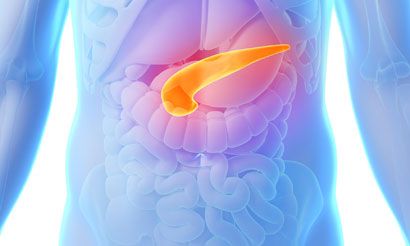GOBLET Trial’s Pancreatic Cohort Displays High Efficacy With Pelareorep/Atezolizumab
Treatment with pelareorep plus atezolizumab in patients with advanced/metastatic pancreatic ductal adenocarcinoma led to an overall response rate nearly triple than the average which were previously reported in historical control trials.

The phase 1/2 GOBLET study of pelareorep (Reolysin) in combination with the anti-PD-L1 checkpoint inhibitor atezolizumab (Tecentriq) demonstrated a positive overall response rate (ORR) and clinical benefit rate (CBR) in a cohort of patients with advanced/metastatic pancreatic ductal adenocarcinoma (PDAC).1
As of the data cutoff date of July 28, 2022, 7 evaluable patients of 10 who were enrolled in the PDAC cohort of the GOBLET trial achieved a partial response, including 3 confirmed and 4 unconfirmed. Two more patients achieved stable disease for an ORR of 70% and a CBR of 90%, respectively. There were no safety signals observed with the studied combination.2
These ORR data are nearly triple the average ORR which have been reported in historical control trials, suggesting that pelareorep synergizes with PD-L1 inhibitors and standard-of-care chemotherapy in patients with advanced/metastatic pancreatic ductal adenocarcinoma.
"The ORR reported in the [Society for Immunotherapy of Cancer] abstract is remarkably nearly triple the average ORR seen in historical control trials of gemcitabine plus nab-paclitaxel, which is only about 25%," said Dirk Arnold MD, PhD, director of Asklepios Tumorzentrum Hamburg, and primary investigator of the GOBLET trial, in a press release. "Further, PD-(L)1 inhibitors only benefit fewer than one percent of pancreatic cancer patients classified as MSI-high. GOBLET's interim results, therefore, strongly suggest that pelareorep's ability to reverse immunosuppressive tumor microenvironments produces synergies when combined with checkpoint inhibition and chemotherapy, leading to vastly improved responses. Given the urgent need for novel therapies in pancreatic cancer, I believe this exciting finding highlights an opportunity for pelareorep to transform the standard of care."
While no cure for pancreatic cancer exists, there are new treatment options being explored. Patients with pancreatic cancer have a 5-year survival rate of just 15%. However, the death rate from pancreatic cancer has reduced by 30% in the past few years with the advances of new treatments.2
GOBLET is an open-label, non-randomized, multiple-cohort, phase 1/2 study evaluating evaluate the safety and efficacy of pelareorep combined with atezolizumab in patients with metastatic pancreatic, metastatic colorectal, and advanced anal cancers.
Investigators are assessing coprimary end points of ORR assessed at week 16 and safety. The secondary end points of the trial include additional efficacy assessments and evaluation of potential biomarkers, such as T-cell clonality and CEACAM6.
In the PDAC cohort of the GOBLET trial, 10 evaluable patients were enrolled and treated with the combination of pelareorep and atezolizumab. More of the updated results from this cohort will be presented in a poster at the upcoming 2022 Society for Immunotherapy of Cancer meeting being held in Boston, MA, from November 8-12, 2022.
The metastatic colorectal and advanced anal cancer cohorts of the phase 1/2 study are proceeding as planned and the cohort of patients with third-line metastatic colorectal cancer is now fully enrolled.
The company is also evaluating pelareorep in the randomized, phase 2, BRACELET-1 (NCT04215146) registration study for patients with hormone receptor-positive/HER2- metastatic breast cancer. A readout on ORR, progression-free survival, and evolving overall survival data from this trial is expected to be announced in the first half of 2023.
"GOBLET's interim results represent a crucial clinical milestone, providing robust proof-of-concept in a difficult-to-treat indication. Our next step is to discuss these data with regulatory authorities and potential partners, with the goal of advancing our pancreatic cancer program into a pivotal study. By adding a second near-term registration opportunity alongside our breast cancer program, we have enhanced pelareorep's value proposition and further de-risked our clinical pipeline. I look forward to discussing the strategic implications of our new data during our earnings call today and to hearing expert perspectives on GOBLET's results at our key opinion leader webinar next week," added Matt Coffey, MD, president and chief executive officer of Oncolytics Biotech Inc, in the press release.
REFERENCES:
Oncolytics Biotech® reports interim results from phase 1/2 GOBLET study showing a 70% objective response rate in pancreatic cancer at the SITC Annual Meeting. News release. Oncolytics Biotech® Inc. November 7, 2022. Accessed November 8, 2022.
Rising incidence of pancreatic cancer driving demand for advanced treatment therapies. News release. FinancialNewsMedia. November 7, 2022. Accessed November 8, 2022. https://prn.to/3zZobq2